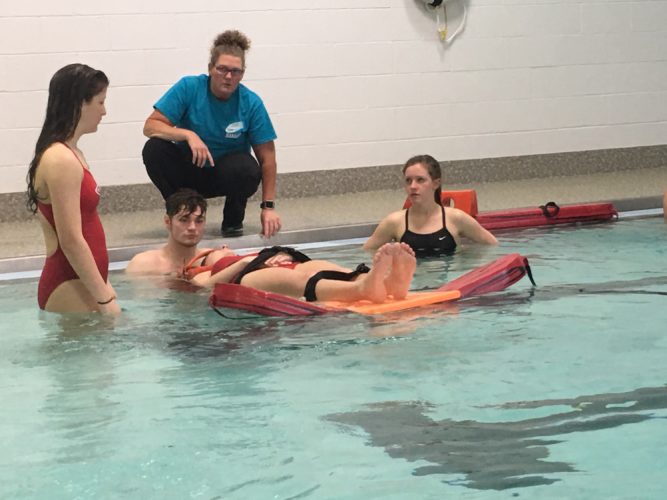
When you think of lifeguards, the first image that comes to mind may be a person standing confidently at a high chair, scanning the water with a keen eye, ready to dive in at a moment’s notice. But there is more to the lifeguard life than meets the eye. Becoming a lifeguard is not just about being able to swim well—it’s about embracing a career full of responsibility, skill, and purpose.
One of the most important steps on the journey to becoming a lifeguard is completing a lifeguard course. This comprehensive training program is your entry into a profession that combines physical ability, quick decision-making, and life-saving knowledge. In this article, we’ll dive deep into what makes the lifeguard course so valuable, how it leads to certification, the opportunities it opens, and how it could lead to your dream job.
Why Take a Lifeguard Course?
The lifeguard course is designed to prepare you for real-life scenarios where every second counts. Whether you’re stationed at a beach, pool, or water park, the course equips you with the tools to keep others safe.
Here are the key benefits:
-
Lifesaving Skills
-
You’ll learn how to perform water rescues, administer CPR and first aid, and respond to emergencies effectively.
-
These skills aren’t just for the job—they can save lives in everyday situations too.
-
-
Physical Fitness
-
Lifeguard training enhances your stamina, strength, and swimming techniques.
-
You’ll complete timed swims, rescue drills, and endurance exercises that improve your overall health.
-
-
Confidence and Leadership
-
Knowing how to handle high-pressure situations builds confidence.
-
Lifeguards often take the lead in emergencies, making it a leadership role by nature.
-
-
Teamwork and Communication
-
Lifeguards never work alone. You’ll learn how to coordinate with a team and communicate effectively during emergencies.
-
-
Employability
-
With your lifeguard training, you become a valuable asset to aquatic facilities across the country and even abroad.
-
How Does Lifeguard Certification Work?
After successfully completing your lifeguard course, the next step is earning your lifeguard certification. Here’s how it typically works:
-
Course Completion
-
You must attend all classes, pass written tests, and demonstrate skills in simulated rescue scenarios.
-
-
Final Evaluation
-
Instructors will assess your ability to respond to various situations, such as spinal injuries, unconscious victims, or multiple rescues.
-
-
Certification Issuance
-
Once you pass the evaluations, you receive an official lifeguard certificate from an accredited organization such as the American Lifeguard Association or American Lifeguard USA.
-
-
Validity
-
Most certifications are valid for two years. After that, you’ll need to undergo lifeguard recertification to keep your skills sharp and up to date.
-
Job Opportunities After Certification
One of the most exciting aspects of completing your lifeguard course is the range of job opportunities that follow.
Top places where you can work as a certified lifeguard:
-
Public and Private Pools
-
Local community centers, gyms, and residential complexes are always looking for certified lifeguards to monitor pools.
-
-
Beaches
-
Ocean and lake lifeguarding jobs offer a more intense but thrilling environment. These positions often pay more due to higher risk factors.
-
-
Water Parks
-
With attractions like wave pools and water slides, lifeguards are essential to ensure guest safety.
-
-
Hotels and Resorts
-
High-end resorts often employ lifeguards year-round, sometimes even offering room and board in beautiful vacation destinations.
-
-
Summer Camps
-
Camps across the country hire seasonal lifeguards to keep kids safe during water activities.
-
-
Cruise Ships
-
Travel the world while working onboard a cruise ship as a lifeguard—it’s a unique experience with great perks.
-
-
Colleges and Universities
-
Many educational institutions have recreational facilities that require trained lifeguards.
-
Turning Lifeguarding Into Your Dream Job
What starts as a summer gig can quickly turn into a long-term career or even your dream job. Here’s how you can grow in the field:
Advance Your Training
-
Become a lifeguard instructor to teach new students.
-
Get certified in specialties like open water rescue, emergency oxygen administration, or aquatic facility management.
Build a Resume in Aquatics
-
Work your way up to head lifeguard or pool manager roles.
-
Consider careers in recreation management, EMS, or even firefighting, where your lifeguard background gives you a strong foundation.
Make a Difference
-
Lifeguards save lives. If you’re passionate about helping people and protecting communities, this job is more than just a paycheck—it’s a calling.
Best Places to Take a Lifeguard Course
When choosing where to begin your journey, it’s crucial to pick a trusted training provider. Here are a few top recommendations:
-
American Lifeguard Association
-
Offers nationally and internationally recognized certification programs.
-
Flexible online and in-person course options.
-
-
American Lifeguard USA
-
Known for comprehensive and up-to-date lifeguard training.
-
Offers accessible classes in multiple states with job placement assistance.
-
-
Local Community Centers or Aquatic Facilities
-
Many local pools partner with certified training programs to offer convenient lifeguard courses.
-
Final Thoughts: The Lifeguard Life Awaits
Becoming a lifeguard is more than a summer job—it’s a serious commitment that comes with responsibility, respect, and the ability to save lives. The lifeguard course is your first wave in a sea of opportunity. With certification in hand, you’re equipped not only with the skills to protect others but also with the chance to build a rewarding and meaningful career.
Whether you dream of working on a sunlit beach, managing a bustling water park, or instructing the next generation of lifesavers, lifeguarding can be your gateway. The lifeguard life is calling—are you ready to ride the wave?